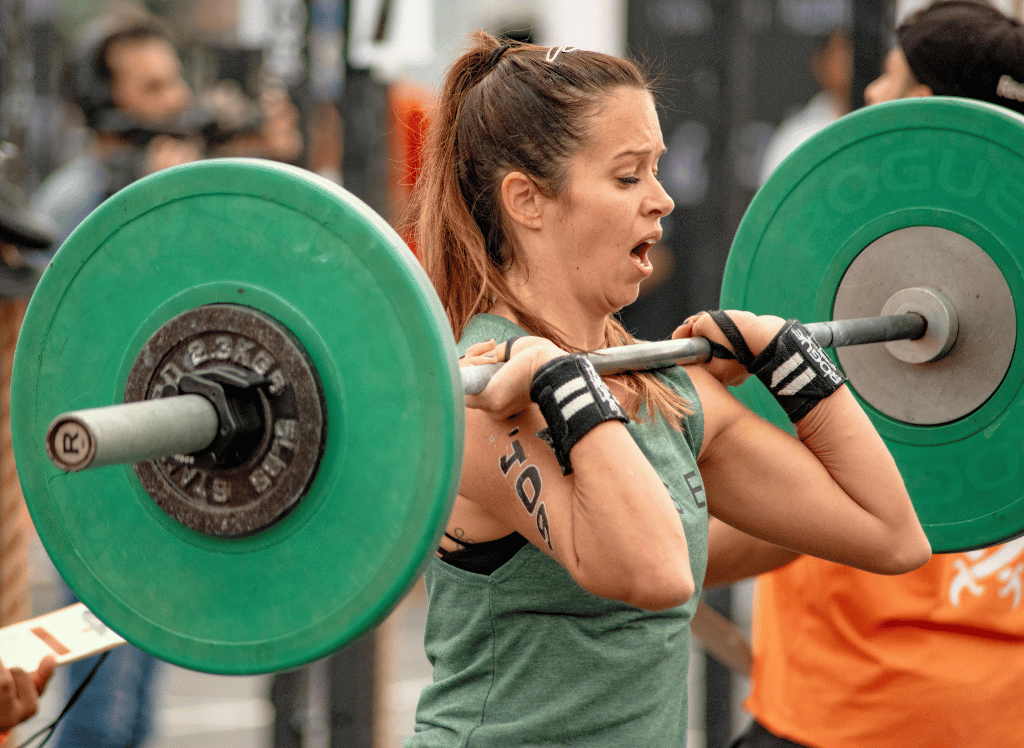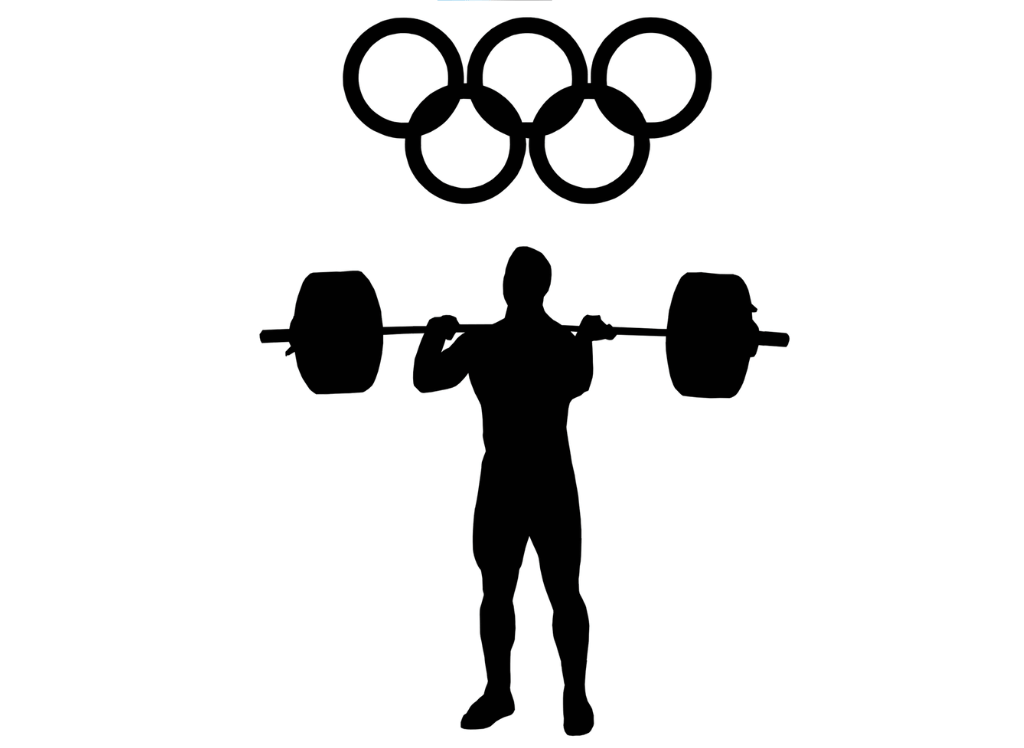When you step into a gym, the bench press is often the star of the show. Have you wondered how much does the bar weigh on a bench press? There can be a variety of answers depending on the type of bar you're using. Understanding the weight of the bar is essential for tracking your progress and ensuring your safety during workouts. We'll get into the details of the types of bars and their weights.
Standard Barbell
The standard barbell is the bread and butter of most commercial gyms. Typically, a standard barbell weighs around 45 pounds and have a 1" diameter. This weight is consistent across most gyms, making it a reliable choice for bench pressing and other exercises.
Standard barbells are versatile and can be used for various exercises, including bicep curls, overhead press, and deadlifts. They are the go-to option for many lifters due to their simplicity and effectiveness.
Olympic Bars
Olympic bars are the big brothers of standard barbells. They typically weigh 45 pounds as well, but they are designed to handle heavier weights. Olympic bars are used in weightlifting competitions and are known for their durability and strength.
These bars have a thicker 2" diameter and are longer than standard barbells. They are perfect for Olympic lifting and powerlifting exercises, providing a solid foundation for lifting heavy weights.
Power Bars
Power bars are another type of barbell commonly found in gyms. They are similar to Olympic bars but are specifically designed for powerlifting. Power bars typically weigh 45 pounds (20.4 kg) and have a stiffer construction to handle heavy loads. Power bars are ideal for bench presses, squats, and deadlifts. Their rigid design ensures minimal flex, providing stability and control during heavy lifts.
Women's Bar
Women's bars are designed specifically for female lifters. They typically weigh around 33 pounds (15 kg) and have a smaller diameter, making them easier to grip. Women's bars are perfect for Olympic lifting and strength training routines.
Bench Press Performance
The weight of the barbell can significantly impact your bench press performance. Using a heavier barbell can increase the intensity of your workout, while a lighter barbell can help you focus on form and technique. Understanding the weight of the bar is crucial for tailoring your bench press exercises.
Weight Plates
Weight plates are used to add resistance to barbells. They come in various sizes and weights, allowing you to customize your workout. Understanding the weight of the barbell and the weight plates is essential for tracking progress and achieving your goals.
Bar Weight and Workout Tracking
Accurately tracking your workouts is essential for monitoring your progress and achieving your lifting goals. Knowing the weight of the bar you're using is a crucial part of this process.
This will give you a clear picture of the total weight you're lifting and help you track your progress over time.
For example, if you're using a standard 45-pound bar and have two 25-pound plates on each side, your total lift weight would be 145 pounds. Keeping detailed records of your lifts can help you identify patterns, set realistic goals, and make informed adjustments to your training program.
Safety Considerations
Safety should always be a top priority when lifting weights. Using the correct bar weight is an important aspect of lifting safely. Lifting too much weight can lead to injuries, while lifting too little weight may not provide the desired training stimulus. Knowing the weight of the bar you're using helps ensure you're lifting an appropriate amount of weight for your fitness level and goals.
Additionally, always use proper lifting techniques and consider using a spotter when performing heavy lifts. A spotter can provide assistance and help prevent accidents, especially when lifting near your maximum capacity. Taking these precautions can help you stay safe and make the most of your lifting sessions.
Common Mistakes to Avoid
One common mistake lifters make is assuming all bars weigh the same. As we've discussed, different bars have different weights, and using the wrong weight can throw off your workout tracking and potentially lead to injury. Always check the weight of the bar before lifting and adjust your records accordingly.
Another mistake is neglecting to account for the bar weight when calculating your total lift weight. This can lead to inaccurate tracking and hinder your progress. Make it a habit to include the bar weight in your calculations to ensure you're lifting the correct amount of weight and accurately monitoring your progress.
Weightlifting Competitions
Weightlifting competitions require standardized barbells to ensure fair competition. Men's bars typically weigh 45 pounds (20.4 kg), while women's bars weigh 33 pounds (15 kg).
Bench Press Bar FAQs
Learn more with the frequently asked questions section.
How much does a standard bench press bar weigh?
A standard bench press bar typically weighs around 45 pounds (20.4 kg). This is the most common barbell found in commercial gyms and is used for a variety of exercises, including bench presses, squats, and deadlifts.
What is the weight of a women's bar?
A women's bar typically weighs around 33 pounds (15 kg). These bars are designed with a slightly smaller diameter and lighter weight, making them perfect for female lifters or those with smaller hands.
Are specialty bars heavier than standard barbells?
Specialty bars can vary in weight, with some being heavier and others lighter than standard barbells. For example, a trap bar typically weighs around 50-60 pounds (22.7-27.2 kg), while an EZ curl bar weighs around 20-25 pounds (9.1-11.3 kg).
How much does a standard barbell weigh?
A standard barbell typically weighs around 45 pounds (20.4 kg). This weight is consistent across most gyms, making it a reliable choice for various exercises, including bench presses, squats, and deadlifts.
What is the weight of an Olympic bar?
An Olympic bar typically weighs 45 pounds (20.4 kg). Olympic bars are designed to handle heavier weights and are used in weightlifting competitions. They have a thicker diameter and are longer than standard barbells.
Summary
Understanding the weight of a barbell is crucial for optimizing your bench presses and achieving your lifting goals. Knowing the weight of the barbell can help you tailor your strength training effectively. From the standard barbell to Olympic bars, each barbell offers unique benefits. By understanding the weight and design of these barbells, you can maximize your workout and achieve better results.









